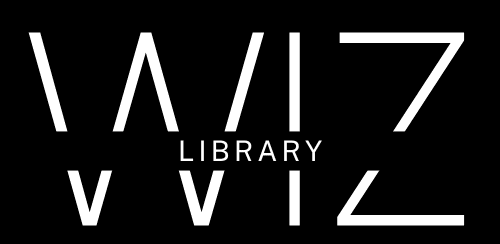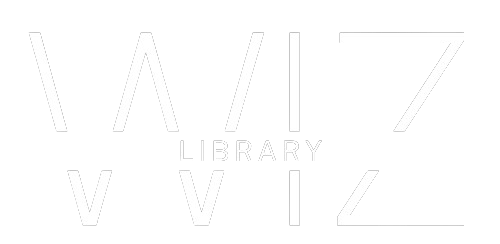Financial planning significantly impacts your financial future, making it a crucial life skill. Regardless of your age or financial status, a well-structured financial plan paves the way to achieving your financial goals and ensuring long-term financial security. This comprehensive blog post explores the six fundamental building blocks for crafting a robust money management strategy, setting you on the path to financial success.
1. Budgeting: The Foundation of Financial Planning
Budgeting stands as the first and most critical building block of a robust financial plan. By creating and adhering to a budget, you can meticulously track your income and expenses, providing a clear financial roadmap for your decisions. Whether you opt for traditional spreadsheets or the convenience of budgeting apps like Mint or YNAB, a budget offers real-time insights into your finances.
To budget effectively, start by identifying your income sources and categorizing your expenses. This understanding of where your money goes each month enables you to make informed decisions about income allocation and financial goal prioritization.
2. Emergency Fund: Your Financial Lifeline
The second building block of your financial plan involves establishing an emergency fund. Life’s unpredictability can lead to unexpected expenses that disrupt your financial stability. To safeguard your financial well-being, strive to save at least three to six months’ worth of living expenses in an easily accessible account. This financial buffer provides peace of mind and serves as a robust safety net during unforeseen emergencies, such as medical bills, car repairs, or sudden job loss.
Creating an emergency fund proactively protects your financial future. It ensures that you don’t have to rely on credit cards or loans during challenging times, which can lead to a debt cycle. With a fully-funded emergency fund, you can confidently tackle unforeseen financial hurdles without jeopardizing your long-term financial goals.
3. Debt Management: Conquer High-Interest Debt
Effective debt management forms the third building block of your financial strategy. High-interest debts, such as credit card balances, can significantly hinder your financial progress. Prioritizing high-interest debt repayment while making minimum payments on lower-interest loans is a key strategy. Two popular debt tackling approaches include the snowball method and the avalanche method.
The snowball method involves paying off the smallest debt first while maintaining minimum payments on other debts. As you eliminate each debt, you roll the payment amount into the next smallest debt. This method provides a sense of accomplishment as you eliminate debts one by one.
In contrast, the avalanche method focuses on paying off the debt with the highest interest rate first, potentially saving you more money in the long run. Whichever method you choose, the goal is to systematically and efficiently reduce your debt burden, freeing up funds for your financial goals.
4. Investment Strategy: Amplify Your Wealth
The fourth building block of a solid financial plan involves formulating an investment strategy. Investing allows your money to work for you, potentially yielding higher returns than traditional savings accounts. Your choice of investments should align with your financial goals, risk tolerance, and investment timeline. Common investment options include stocks, bonds, real estate, and mutual funds.
When considering an investment strategy, it’s essential to diversify your portfolio to spread risk and enhance potential returns. Diversification can help protect your investments from the volatility of individual assets. Many individuals choose to invest in low-cost, broad-based index funds to achieve diversification while keeping expenses minimal.
If you’re new to investing or feel uncertain about making investment decisions, consider consulting a financial advisor. A professional can help you create a personalized investment strategy tailored to your specific needs and risk tolerance. They can also provide ongoing guidance to ensure your investments stay on track with your financial goals.
5. Retirement Planning: Safeguard Your Future
The fifth building block of financial planning involves preparing for retirement. Starting early is crucial, as it allows you to benefit from compound interest and long-term wealth accumulation. Contributing to retirement accounts such as a 401(k) or an Individual Retirement Account (IRA) is a smart move.
If your employer offers a 401(k) plan with a matching contribution, be sure to fully utilize this benefit. It’s essentially free money that can significantly boost your retirement savings. Over time, your contributions, employer matches, and investment returns can grow into a substantial nest egg that will provide financial security in your later years.
Additionally, as you approach retirement age, it’s crucial to have a clear plan for how you’ll withdraw your savings during retirement. This involves determining your retirement income needs, considering factors like Social Security benefits and other income sources, and making informed decisions about when to start receiving Social Security benefits.
6. Insurance: Safeguard What Matters Most
The final building block of a comprehensive financial plan is securing adequate insurance coverage. Insurance protects you and your family from unforeseen events, including health issues, accidents, or natural disasters. It’s essential to have health, life, home, and auto insurance tailored to your specific needs to ensure that you are adequately protected in times of crisis.
Health insurance provides coverage for medical expenses and can protect you from the financial burden of unexpected health issues. Life insurance can offer financial security to your loved ones in the event of your passing, helping them cover expenses and maintain their quality of life. Home and auto insurance protect your valuable assets and provide financial relief in the event of accidents, theft, or damage.
Recommended Books on Financial Planning
For those seeking in-depth knowledge and practical insights into financial planning, several excellent books authored by renowned experts can provide valuable guidance on your financial journey:
- “The Total Money Makeover” by Dave Ramsey – This bestseller provides a comprehensive step-by-step plan to get out of debt, build wealth, and achieve financial peace. Ramsey’s “baby steps” approach offers actionable advice for individuals at any stage of their financial journey.
- “Rich Dad Poor Dad” by Robert Kiyosaki – Kiyosaki explores the fundamental differences in mindset and financial strategies between his “rich dad” and “poor dad,” offering invaluable insights on building wealth. This book challenges traditional financial beliefs and encourages readers to think differently about money.
- “The Millionaire Next Door” by Thomas J. Stanley and William D. Danko – This book uncovers the common traits of millionaires and offers practical insights into wealth-building habits and principles. By studying the behavior and choices of everyday millionaires, Stanley and Danko provide valuable lessons on how to accumulate wealth steadily.
Conclusion
In conclusion, a robust financial plan builds on these six fundamental building blocks: budgeting, an emergency fund, debt management, investment strategy, retirement planning, and insurance. Mastering these financial essentials empowers you to achieve your financial goals and secure a prosperous future. If you prefer concise digital resources, explore the summary eBooks available on Wizlibrary. These eBooks offer valuable insights into various financial planning topics, allowing you to streamline your learning and achieve financial success. Embark on your journey to financial literacy today with Wizlibrary’s comprehensive collection of eBooks, and take control of your financial future.
Unlock Wisdom with the Book Summaries!
📚 Short on Time? Dive into concise book summaries that distill the essence of entire books. In just a few minutes, you’ll gain key insights without a lengthy commitment.
🌟 Why Opt for Summaries?
- Efficiency: Get the juicy bits without wading through pages.
- Broaden Horizons: Explore diverse genres—self-help, motivation, finance, and more!
- Actionable Knowledge: Apply practical wisdom immediately.
🔗 Visit Wiz Library today to unlock a treasure trove of knowledge. Your shortcut to brilliance awaits! 📖🚀
















I like this web blog it’s a master piece! Glad I
detected this ohttps://69v.topn google.Leadership